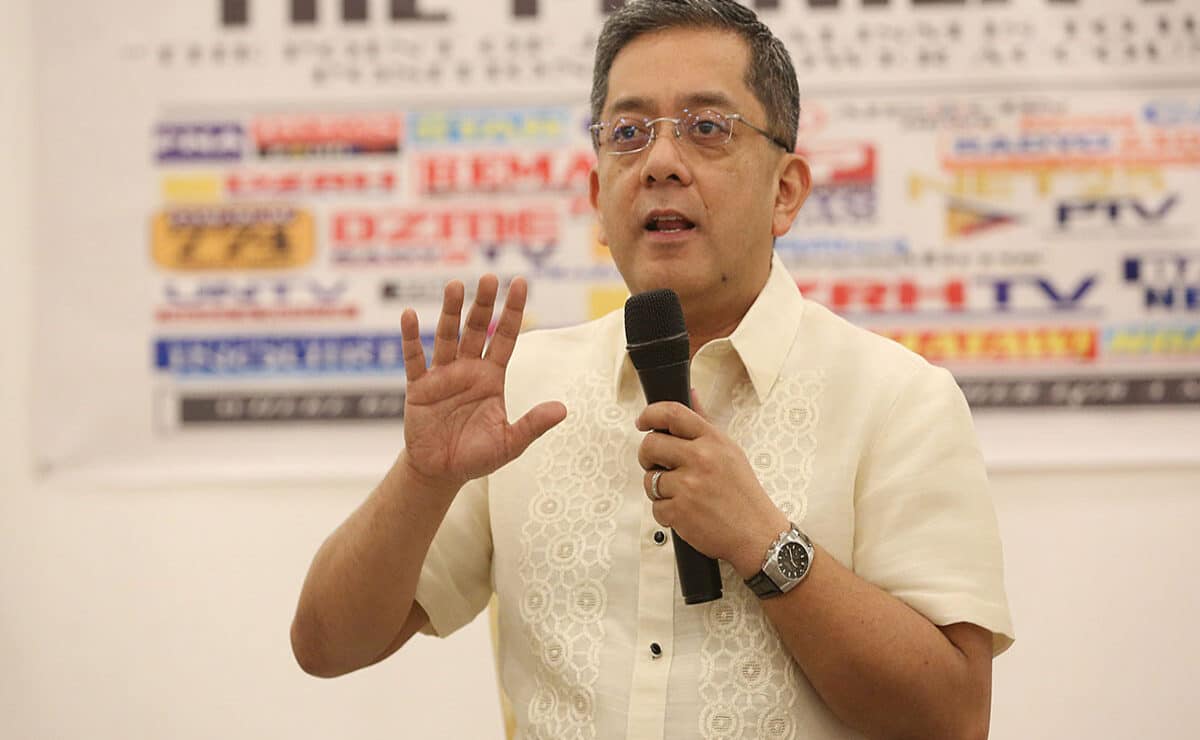Comelec: EU watchers not allowed in polling precincts

The Commission on Elections Chairman George Erwin Garcia. — Inquirer file photo by Niño Jesus Orbeta
MANILA, Philippines — The Commission on Elections (Comelec) announced Thursday that election observers from the European Union (EU) would not be allowed inside polling precincts on Election Day, citing legal restrictions.
On Wednesday, EU election observation mission (EOM) chief observer Marta Temido said their observers were tasked to be deployed to respective nationwide polling precincts.
READ: EU: PH poll observation mission ‘running smoothly’
However, during his meeting with EU-EOM officials, Garcia said that he and the commission’s ruling body would not allow such a move.
“The [Comelec] en banc is standing firm that we cannot allow anybody inside the polling precinct,” Garcia said of EU observers in a press conference in Manila on Thursday.
Against the law
Garcia noted that the Omnibus Election Code only allows voters, electoral board members, election watchers from citizens’ arm, authorized majority and minority parties, and Comelec’s support staff inside polling precincts.
“If we were to give you permission, we told them, that is impeachable, because the law provides that only the following individuals can enter a polling precinct,” Garcia explained, adding that the law is “very specific” on who is allowed or not inside a polling precinct.
The Comelec chief also noted that even members of the media, police, and military personnel are not allowed to enter polling precincts “even if there is a commotion” without permission from the electoral board members.
“Whoever enters inside the precinct, and that person is not authorized [to enter] by the law—that is an election offense. I clearly emphasized it to them,” he added.
First time
Upon the government’s invitation, a large number of EU-EOM teams arrived in the country to observe the polls for the first time.
On May 12, Monday, 226 personnel from the EU-EOM team are expected to be deployed in the country to observe.
The EU-EOM’s core team of analysts arrived in Manila in March.
The mission’s 72 long-term observers arrived in April, followed by the entry of their 104 short-term observers this week. They were deployed in all 17 regions nationwide, tasked with filling out an observation form that they would submit to the EOM’s core team, which is manned by a dozen analysts.
A delegation from the European parliament and 20 members of the diplomatic community from EU member states, Canada, Norway, and Switzerland are then expected to join the mission in the coming days.
The EOM will only publish its initial findings on May 14, or two days after the elections, while its final report will be out two months after the polls.
Once finished, the EU will present its initial and final assessment to the Philippine government, which invited the team to conduct the mission for the first time.
“It’s up to each government to decide. It’s up to each society, up to each country, to decide to implement or not our recommendations,” Temido said in a press conference on April 25.
READ: EU observers say mission includes checking on PH poll interference claim
Garcia ‘invokes sovereignty’
Garcia initially welcomed the arrival of this mission.
However, he said, “There seems to be a conflict now between what they believe is their mandate in their observation mission and what we believe should be the application of our laws.”
“The Comelec will always implement and stand firm in the implementation of our laws… [T]hey told us in our agreements that they will always recognize the laws of this country, that they will always recognize the sovereignty of this country—and therefore we are invoking that.”
“We are invoking the sovereignty of this country, and we are invoking Philippine law,” he added. “We are just protecting the sanctity of the votes, and the solemnity of what’s happening inside the polling precincts.”/mcm


















